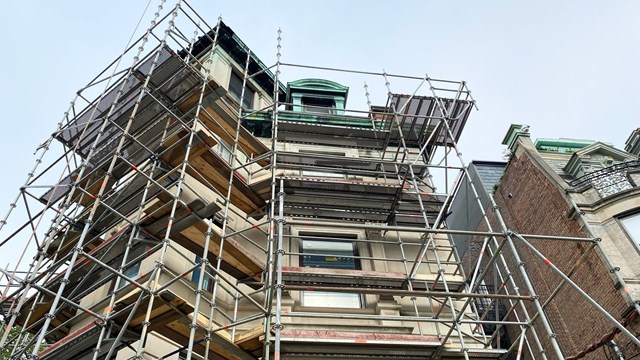There’s almost nothing that sounds more luxurious to potential co-op and condo buyers than an on-site swimming pool. Apartment prices are often higher in buildings with pools because they are viewed as a fun and relaxing amenity. However, managing and maintaining a building’s pool can be anything but relaxing. Swimming pools demand a great deal of time, energy and money. Joyce Siegel, board president at the Vanderbilt, a 369-unit condo at 240 East 41st Street in Manhattan, says in reference to her building’s pool, "A lot of people love pools, but when you start looking at the bottom line, you start to think, ‘oh no.’" For a building to successfully manage a swimming pool, it must address many issues including liability, usage regulations and maintenance. Proper management insures that the pool will be safe and enjoyable for everyone–this is no small task.
"House Rules" With
Regard to Usage
It is crucial that buildings have clear-cut guidelines for the use of pool facilities. This helps to create a safe environment and protects the privacy of residents who live close to the swimming pool and might be disturbed by noise coming from the pool area. Bruce Cholst, an attorney at Rosen & Livingston, a law firm in Manhattan which specializes in co-ops and condos, suggests that buildings visibly post a set of rules that includes the following:
• Children under the age of ten must be accompanied by an adult
• Hours of use must be strictly outlined and subject to guidelines
• Parties should be subject to guidlelines which include restrictions as to number of people, hours, use, objects brought into the pool area, etc.
• No stereo equipment or speakers are permitted in the pool area
• All debris and garbage should be removed by the individuals responsible for it
• There are to be no active sports, running, ball playing, etc.
Rules such as these protect the building from liability and prevent the pool from infringing on the privacy of nearby residents.
Buildings should also have policies on use of the pool by non-residents. It is inevitable that residents will want to share the pool with guests, and the board must decide what, if any, restrictions will apply to their use of the pool.
The pool facilities in most buildings are open to all residents, but in some cases residents are charged a health club fee for use of the pool. Some buildings even allow people outside the building to join their health clubs. The fees earned from these additional memberships are a practical way to make maintaining the pool more economically feasible for the building. However, this is usually only done in buildings that have an entrance to the pool from outdoors. It is a considerable security risk to have a stream of people entering the building through the main entrance on a regular basis.
Some buildings allow residents to rent out the pool facilities for private parties. Cholst himself rents the pool in his building for an annual pool party. He says, "We have a very intelligent house rule that requires one lifeguard and one security guard." Cholst’s building also segregates a special area for food, so that party-goers can eat without the danger of spillage into the swimming pool or the areas around it.
Minimizing Liability
No matter how safe a pool environment, there is always the possibility that someone will be injured, and it is crucial that buildings protect themselves from potential lawsuits.
According to Cholst, the most important thing a building can do to protect itself from liability is to have all residents sign a waiver of liability and indemnity. By signing these forms residents agree not to hold the building liable for accidents, thefts or damages that occur in the pool facilities. However, these waivers do not completely protect the buildings from lawsuits, particularly if there is evidence of negligence on the part of the building.
It is also crucial that the pool be well-maintained, to prevent accidents from occurring in the first place. By minimizing the potential for accidents to occur, a building also minimizes the chance of a lawsuit. David Khazzam, vice president of management at Aptek Management in Manhattan says that his company makes sure that all of its swimming pools "follow all New York City health codes and go above and beyond."
Many buildings employ a security guard to make sure that people are not engaging in rowdy, dangerous behaviors. It is also advisable to install security cameras in the health club facilities, so that no one can sneak into the pool during off-hours.
Proper maintenance also prevents the pool from damaging property, for which the building can also be held liable. This is particularly important in buildings with rooftop pools, which may leak into the apartments below.
Of course, any building with a swimming pool must have insurance to cover any accidents that occur in its facilities. As Cholst says, "Accidents will happen. The best protection is adequate insurance."
Third-Party Responsibility
There are companies that specialize in managing swimming pools and health club facilities for co-ops and condos. The services they provide include staffing and maintaining the pool. The majority of buildings with pools use these companies, in part because of the reservoir of employees that they provide. Siegel says that the Vanderbilt has tried to manage their pool without a pool management company but it’s extremely difficult, "You can’t do it, you can’t find the staff."
One advantage of using a swimming pool management company is that these companies are also insured and assume some of the responsibility for the pool’s safety and cleanliness. Khazzam says, "Ninety-nine percent of the pools in New York City have a separate company managing the pool. For liability purposes this is better, it spreads the liability around. It is an extra layer between the co-op board and the building management."
New York City law requires that a lifeguard be present during all hours of pool operation. And, in buildings with large health club facilities, a staff of several people is sometimes necessary. Using a swimming pool management company gives buildings access to substitute employees. If a lifeguard is sick or someone is having a private party it is easy for buildings to meet their staffing needs. Howard Sklar, vice president of Total Pool Management in Hauppauge, New York, along with partner Norman Kay, says that his company has 180 employees, some of whom are used as substitutes at pools where regular employees are sick or unavailable.
Swimming pool management companies frequently train their own lifeguards and Certified Pool Operators (CPOs); by law there must a CPO at the pool, so it is very convenient for the lifeguard to have this certification. Lifeguards are also usually responsible for day-to-day maintenance of the pool.
Companies like Total Pool Management also drain outdoor pools and close them for the season and have representatives present at board of health inspections where they address any health code issues.
Siegal says that, even with a pool management company, pool employees are often transient. Lifeguards, for example, are often college students. She also says that it can be "hard to monitor off-payroll employees."
Some pool management companies go beyond basic staffing and maintenance services, to offer additional services. EPG Spa & Pool Management in Manhattan "provides the full gamut," of health club services, according to president Joe Grimes. They offer spa services such as manicures, pedicures and massages.
The cost of pool management is based on a building’s staffing needs and hours of operation. Outdoor pools, which are only open for about 15 weeks a year, cost significantly less than indoor pools. Sklar says that the cost of his company’s services ranges between $16,000 and $200,000 a year.
Using a pool management company does not completely alleviate the board and building management from maintenance and staffing issues. Khazzan describes it as a system "checks and balances." Management companies need to be informed about all issues concerning the pool, so that they effectively monitor the performance of the pool management company.
Maintenance
Daily maintenance of the swimming pool involves skimming the water for debris and cleaning the poolside area. The water must also be carefully monitored, for the pool to be safe it must be kept at specific alkalinity, pH and chlorine levels.
Swimming pools involve plumbing, heaters, pumps and other technical equipment which may occasionally need repair. Many pool management companies do not handle extensive repairs themselves, but are responsible for contracting an outside company to do the work. Mechanical problems usually require immediate attention and can be quite costly. Christopher Carthy, president of Pools of Perfection, in Roslyn Heights, New York, "an intense service company," says that pool repairs can cost anywhere from $500 to $30,000.
While swimming pools may make for happy building residents, they are often a challenge to manage and maintain. But by forming a close working relationship with a pool management company and by taking proactive measures to make sure that the pool is safe and healthy, the stressfulness of maintaining a swimming pool can be minimized. Pools are potentially dangerous and require a great deal of upkeep, but if the seriousness of these issues is addressed effectively, managers can provide residents with a high-quality pool environment while minimizing the headache factor for themselves.







15 Comments
Leave a Comment